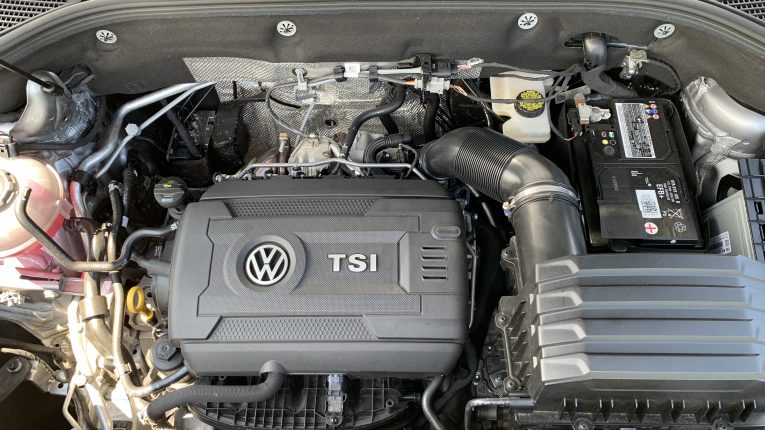
How to Know What Type of Oil Your Car Needs
Motor oil plays an important role in keeping the car’s engine healthy. It helps to improve engine performance and improves fuel economy. There are different types of motor oils available in the market. choosing the right oil for your car can be challenging. The following tips can be considered for knowing what type of oil your car needs:
You may also check on The Grumpy Mechanic to learn more about garage tools & special tips and tricks to fix automotive problems.
Read the Labels
You should check the labels on the motor oil before buying. API uses two symbols- API donut and API certification starburst. The donut label describes the oil’s performance level, oil’s viscosity, and whether the oil has energy conserving potential. The starburst symbol indicates whether the oil was tested and met the prescribed standards.
If you didn’t want to have to work this out for yourself, you can avoid the hassle of the whole job and go to somewhere like this brake shop in Sacramento, who will be able to sort you out so you can get on the road safely.
Viscosity
Viscosity is the resistance of a liquid to flow. The thicker a liquid, the higher is its viscosity. The viscosity of motor oils is rated on how thick it is at zero degrees Fahrenheit. It becomes thinner at high temperatures and more viscose at low temperatures. A more viscose motor oil provides better lubrication between moving parts and seals the critical components of the engine. On the other hand, at low temperatures, the oil should not become too thick as it will prevent it from flowing properly to all moving parts of the engine. If the motor oil is too thick, you will find it difficult to start the engine and the fuel economy will also drop.
Type of Oil
You should choose the ideal type of oil for your car for getting the best performance. It is recommended to refer to your car’s owner manual for finding suitable and compatible motor oil. You can consider buying from among the following types of oils:
Premium Conventional Oil
These are the most common and conventional motor oils. Most leading car manufacturers recommend using premium conventional oil. They are tested in different viscosities under the latest API service label. A 5W-20 or 5W-30 oil is recommended for colder climates, while 10W-30 oil is ideal for hot temperatures. You should also change the oil regularly as recommended by the manufacturer. It should be changed every 4,000 miles. Cars fitted with electronic oil-change indicator can alert you when it is time to change the oil. Once the oil has been changed, you must ensure to reset the oil-change indicator to get the correct readings.
Full Synthetic Oil
These oils use more synthetic additives. They are meant for heavy-duty applications and heavy vehicles. You can check the labels to verify if the oil has passed stringent tests related to viscosity, protection against deposits, etc. Full synthetic oils flow better at low temperatures and maintain more viscosity at higher temperatures. However, you should be careful before using these oils. Not every engine needs them, and they are costlier than most oils in the market. Your engine may need some features needed by your car’s engine that are not present in full synthetic oils. It is best to refer to your car’s manual for deciding the best oil type for it.
Synthetic Blend Oil
Synthetic blend oil has a mix of synthetic oil blended with organic oil. These oils are made to protect the engine from the heavy workload and at high temperatures. A key benefit of using synthetic blend oil is that they are less volatile. This means that they evaporate less which reduces oil loss and aids in improving fuel efficiency. Synthetic blend oil is perfect for trucks or pickup vehicles that have to manage a heavy workload that puts more stress on the engine. They are also much cheaper than full synthetic oil and only slightly more expensive than premium conventional oil.
Higher-Mileage Oil
Modern cars last longer due to their superior design and engineering. Most modern cars will run into 6 digits mileage before being replaced. Oil manufacturers have realized this and formulated a special motor oil for high mileage cars. An aging car with high mileage can show signs of wear and tear. You can notice oil leaks and stains on the garage floor. This may be due to the hardening of engine seals near the crankshaft that causes them to crack and leak. It is more evident at low temperatures.
Higher-mileage oils have conditioners that flow into the pores of the engine seals. This helps to restore their shape and improve their flexibility which prevents oil leaks. These oils have slightly higher viscosity. Some higher-mileage oils can contain additives for improved functioning and performance. They offer many benefits for an older car and cost only a fraction of full synthetic oils.
Oil Additives
Oil companies use additives for better performance. The use of additives can help combat the problem of sludge and varnish. Some of the most common additives used in oil are as follows:● Detergents: They help to remove some of the deposits and reduce the formation of deposits, rust, and corrosion-related to high temperatures. ● Anti-wear additives: With time, the lubricating film created by the motor oil breaks down. Anti-wear additives help to protect the metal surfaces in such cases. ● Viscosity index improvers: With regular use, the viscosity of oil reduces. It becomes thinner and provides lesser lubrication and protection. Viscosity index improvers reduce the tendency of motor oil to thin. ● Foam inhibitors: When the crankshaft rotates through the oil in the pan, it causes foaming. Foamy oil does not provide enough lubrication. Foam inhibitors help to reduce the foaming. ● Friction modifiers: These additives reduce friction and improve the engine’s overall functioning and fuel economy.
Remember- More is Not Better
While additives may help improve your car’s performance, you must remember that more of them are not good. They must be balanced against many factors and simply adding more additives may not improve the oil’s performance. Sulfur compounds have good anti-wear properties, but they can also reduce the fuel economy. Similarly, adding excess detergent could affect the anti-wear balance of the oil.
Conclusion
You should consider factors like labeling and viscosity before buying motor oil. There are different oil types that you can buy. You should check the car’s manufacturer recommendation for buying the best oil. Motor oil should also be checked and replaced regularly to keep your car’s engine protected.










It is interesting to learn that motor oil plays a huge role in a car’s engine health and performance. I like how you mentioned that synthetic oils are meant for heavier vehicles. My dad wants to buy some motor oil for his truck and doesn’t know what kind to buy, so I will be sure to pass this information along.
[…] by using a good quality product when you do change the oil in your car you can maximize the chances that it will run smoothly and provide you with the best […]